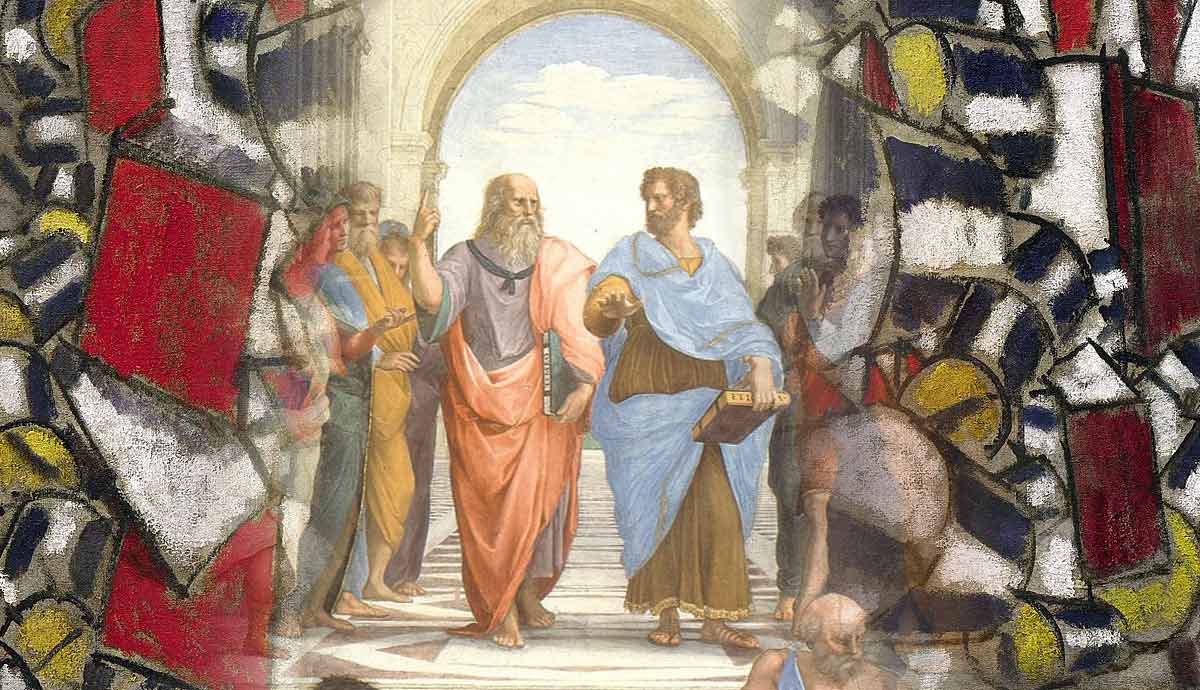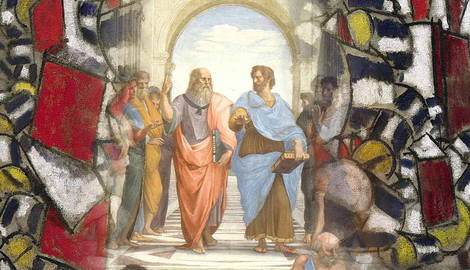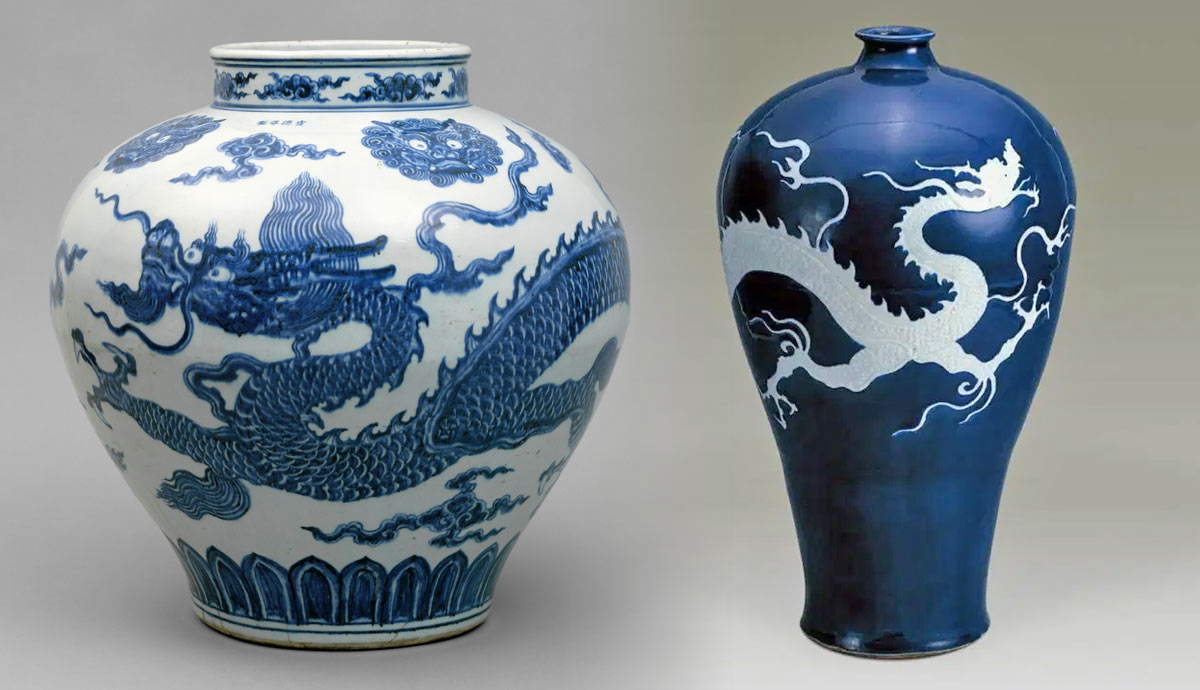
Plato and Aristotle were the two most important Ancient Greek philosophers. No other philosophers have done more to set the agenda for Western philosophy than these two. Between them, many of the core disciplines of philosophy were either pioneered or developed greatly. But Plato and Aristotle weren’t just two of Ancient Greece’s most significant philosophers and intellectuals – they were also teacher and student. However, over time Aristotle eventually opposed Plato’s most famous work, the Theory of Forms. Why did the student turn on perhaps his greatest mentor? Read on to find out more.
Aristotle and Plato Became Rivals

Plato and Aristotle knew one another well; Plato founded a school in Athens, known as the Academy, and Aristotle was a student there. In spite of this, and Aristotle’s obvious respect for Plato (and Plato’s mentor Socrates), Aristotle’s thought ended up diverging greatly from that of his teacher, leading them to eventually become intellectual rivals.
He Thought Plato’s Work Was too Abstract

Aristotle thought that Plato’s Theory of the Forms was too abstract. To understand why, we have to summarize Plato’s theory. The Theory of Forms holds that reality as it appears to us is quite different from reality as it really is. In other words, appearances are deceptive. The way things really are is represented in Plato’s World of Forms, which is the plane of reality on which Forms exist.
But what are the Forms? According to Plato, Forms are the ideal, abstract entities, which correspond to things in the world of appearances, but are in fact the ideal versions of those things. Plato is very clear that there are forms for more abstract qualities – truth, beauty, goodness, justice and so on – but goes back and forth on the question of whether there are forms of ordinary objects, sticks, mud and such. Aristotle, however, was critical of Plato’s theory. He thought that it was too abstract, and insufficiently rooted in the real world.
Aristotle Didn’t Believe That Appearances Were Deceptive

The distinction between appearances and reality in Plato is very clear. How things appear does not, in any significant sense, correspond to how things really are. Although Plato’s World of the Forms is occupied by concepts which do have (imperfect) manifestations in his World of Appearances, it is not simple to infer how things really are from how things appear.
Plato believes that we can understand how things really are through philosophy. For Plato, philosophy is opposed to everything that is obvious or clearly apparent. The purpose of philosophy is, through intelligent and discerning conversation, to test our assumptions for flaws. That is the way in which many of Plato’s Socratic dialogues proceed – from a position of security to a position of uncertainty.
For Aristotle, this is one of the biggest problems with Plato’s philosophy. Not the progression from certainty to uncertainty – Aristotle certainly doesn’t think that philosophy has nothing new to teach us, no challenge to make to our ordinary way of thinking about things. However, Aristotle does not see knowledge and experience as opposed. Aristotle was what is known as an empiricist in the traditional sense, following the theory that knowledge comes from our experiences. It is often opposed to rationalism, which is the theory that knowledge comes from deduction.
Aristotle Didn’t Think That the Forms Were Real

A second point of disagreement between Aristotle and Plato follows on from the first. Aristotle doesn’t just disagree about how we come to know what we know. He also disagrees with Plato about how things are. In particular, the vision of the Forms runs against Aristotle’s own way of dealing with Forms. Or rather, we should say with ‘forms’ (lower case f), as that is one of the ways which the difference between Aristotle and Plato’s conception of forms or Forms is marked.
Let’s follow that quirk a little way, in order to draw out the difference between Plato and Aristotle in this area. We call Platonic Forms ‘Forms’ because they are proper nouns. They refer to actual entities, singular entities, which really exist independently of anything else.
It is worth clarifying what it is for something to ‘exist independently’ here; it means that it isn’t just the aspect of something else. Meanwhile, forms for Aristotle are always the forms of something. Things can only be understood as compounds of form and matter. In other words, he thought the forms do not exist independently, which is why he was so critical of Plato’s view that they do.
Aristotle Wanted Us to Use Experience

Even though Plato was Aristotle’s mentor, Aristotle disagreed with Plato about a great many concepts. One of these was the idea that knowledge cannot be derived from experience. That is, Plato’s rationalism. For Aristotle, we can use our experiences to develop an understanding both of the structure of things, and of the material by which they are composed.










